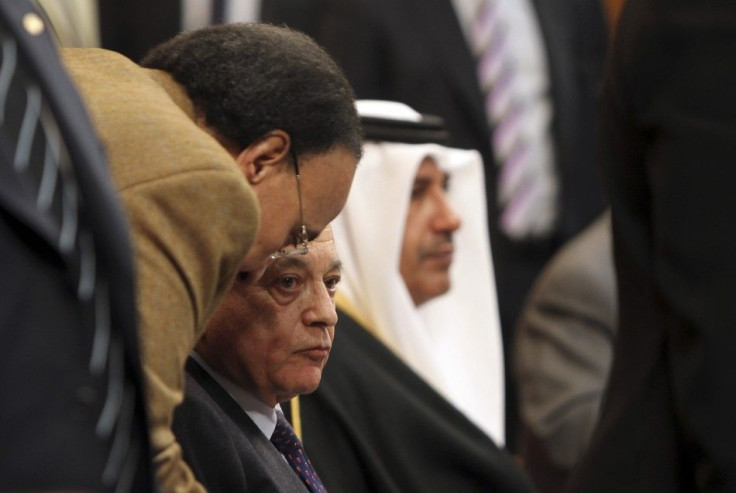Syria Says Arab League Call for Assad Stepdown a 'Conspiracy'

Accusing the Arab League of attempting to interfere in internal government affairs, Syria on Sunday rejected a call for President Bashar al-Assad to step down, just as the European Union tightened sanctions on the country.
Syria rejects the decisions of the Arab League ministerial council ... and considers them a violation of its national sovereignty and a flagrant interference in its internal affairs, an official Syrian source was quoted by the state news agency, SANA, as saying, adding that the Arab League plan reflected a conspiracy against Syria.
Growing frustrated with Assad's failure to implement the terms of a peace plan he agreed to in November, the Arab League called on Assad to transfer his power to his vice president under the terms of a transition plan similar to that in Yemen, which, hours earlier, saw the departure of President Ali Abdullah Saleh, The Associated Press reported.
The plan, which was presented at a meeting of Arab foreign ministers in Cairo, outlined a timetable for negotiations with the opposition. It would begin in two weeks and a national unity government formed within two months. The stepping down of Assad would set the stage for free elections to be held within three months. In the interim, one of Assad's vice presidents, Farouk al-Shara or Najah al-Attar, would be expected to take over, though it was not immediately clear which one, the AP wrote.
EU foreign ministers supported the Arab League plan, saying in a statement: President Assad must step aside immediately to allow for a peaceful and democratic transition.
On Monday, EU ministers added 22 people and eight entities to a list of banned people and groups -- these entities were responsible for human rights violations and for supporting Assad's government, the ministers wrote in a statement after a meeting in Brussels.
Syria's opposition coalition, the Syrian National Council, also welcomed the initiative to remove Assad, the group's leader, Burhan Ghalioun, told reporters in Cairo.
Rami Khouri, a Beirut-based commentator, said the unusual and bold move by the Arab League was bad news for Assad, Reuters reported.
The fact that Arab countries would propose such a clear intervention and essentially order him to step aside and give him a mechanism to do so is quite a dramatic sign of how much credibility and legitimacy he has lost in the region, Khouri said.
But in a speech earlier this month, Assad vowed that he would not step down unless asked by the Syrian people to do so.
The chances of that happening are next to zero, and I also can't imagine Assad will accept this, said Salman Shaikh, director of the Brookings Doha Center in Qatar.
At best, this is throwing down something that is certainly new but has little chance of success.
Assad has remained defiant despite a 10-month-long uprising against his rule, which, according to the United Nations, has seen the deaths of at least 5,000 people.
The league said it would refer the plan for endorsement to the United Nations Security Council, indicating that Arab states are prepared to seek wider international involvement in Syria.
© Copyright IBTimes 2024. All rights reserved.





















